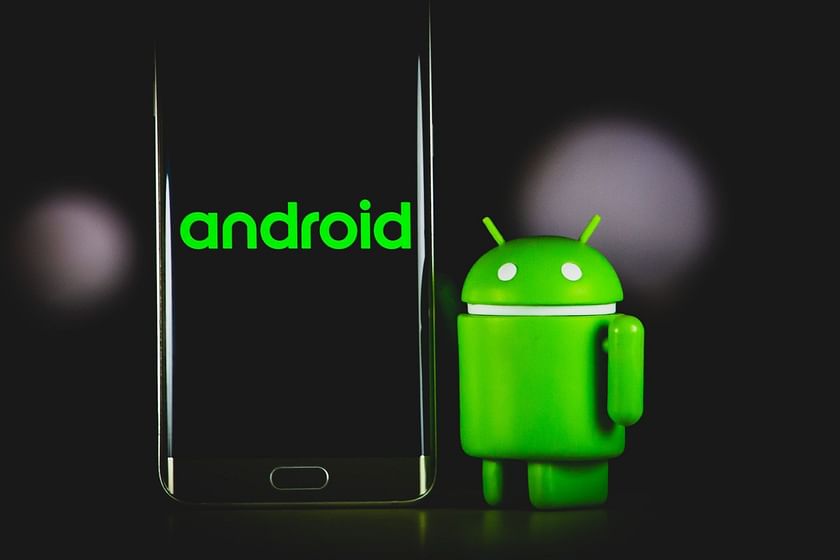When it comes to the best Android OS, there are a variety of options available to suit different needs and preferences. In this article, we will explore some of the top Android operating systems and their key features.
1. GrapheneOS: Known for its strong focus on privacy and security, GrapheneOS is a popular choice for those who prioritize data protection. It offers features like verified boot, hardened memory allocator, and sandboxing to ensure the highest level of security.
2. Mobian: Designed specifically for mobile devices, Mobian provides a user-friendly interface and a range of customization options. It is based on Debian and offers a seamless experience for both smartphones and tablets.
3. ClearOS Mobile: Developed by ClearCenter, ClearOS Mobile offers a comprehensive suite of features, including device management, app distribution, and remote support. It is an ideal choice for businesses looking for a robust and secure Android OS.
4. PilarOS: PilarOS is a lightweight and efficient Android OS that focuses on speed and performance. It offers a clean and intuitive interface, making it suitable for users who prefer a minimalist design.
5. Fire OS: Developed by Amazon, Fire OS is specifically designed for Amazon Fire tablets and devices. It offers seamless integration with Amazon services and provides a unique user experience tailored to Amazon’s ecosystem.
6. Wear OS: Formerly known as Android Wear, Wear OS is designed for smartwatches and other wearable devices. It offers a range of features like fitness tracking, notifications, and voice commands, making it a popular choice for wearable enthusiasts.
7. Nothing OS: Developed by Nothing, a technology company founded by Carl Pei, Nothing OS is an upcoming Android-based operating system. Not much is known about it yet, but it promises a unique and innovative user experience.
8. OxygenOS: Developed by OnePlus, OxygenOS offers a clean and customizable interface with a range of features tailored to enhance the user experience. It is known for its smooth performance and regular software updates.
These are just a few examples of the best Android operating systems available. Each OS has its own unique features and strengths, so it’s important to consider your specific needs and preferences when choosing the best Android OS for you. Whether you prioritize privacy, performance, or customization, there is an Android OS that will suit your requirements.

Which Android Has the Best OS?
When it comes to determining which Android has the best operating system (OS), it ultimately depends on individual preferences and priorities. However, there are several Android OS options available that are highly regarded by users and offer distinct features. Here are some of the top Android OS choices:
1. GrapheneOS: Known for its emphasis on security and privacy, GrapheneOS provides a hardened and privacy-focused Android experience. It offers features like strong sandboxing, verified boot, and enhanced privacy controls.
2. Mobian: Mobian is a mobile OS based on Debian that focuses on providing a fully functional GNU/Linux distribution on mobile devices. It offers a desktop-like experience and supports a wide range of applications.
3. ClearOS Mobile: ClearOS Mobile is a mobile operating system developed by ClearCenter. It is designed for businesses and organizations, offering features like secure remote management, VPN support, and centralized user management.
4. PilarOS: PilarOS is an Android-based operating system that aims to provide a secure and private user experience. It focuses on privacy enhancements, including app permissions control and data encryption.
5. Fire OS: Developed by Amazon, Fire OS is a heavily modified version of Android designed specifically for Amazon’s Fire tablets and Fire TV devices. It offers seamless integration with Amazon services and a unique user interface.
6. Wear OS: Wear OS, formerly known as Android Wear, is Google’s operating system for smartwatches. It provides a range of features tailored for wearables, including fitness tracking, notifications, and voice commands.
7. Nothing OS: Nothing OS is an upcoming operating system developed by the company Nothing. Details about the OS are limited, but it aims to provide a clean and minimalist user experience.
8. OxygenOS: OxygenOS is a custom Android OS developed by OnePlus for its smartphones. It offers a near-stock Android experience with additional customization options, performance optimizations, and useful features.
It’s important to note that the “best” Android OS may vary based on factors such as security, privacy, user interface, device compatibility, and personal preferences. It’s recommended to research and try out different Android OS options to find the one that suits your needs the most.
Which Android Version is the Best?
When it comes to determining the best Android version, it ultimately depends on personal preferences and specific needs. However, here is a ranking of the top 10 Android versions based on their features, performance, and user satisfaction:
1. Android 11: Released in 2020, Android 11 introduced several improvements in privacy, messaging, media controls, and device controls. It offers enhanced security features and better app permissions management.
2. Android 10: Also known as Android Q, this version brought a system-wide dark mode, improved gesture navigation, and enhanced privacy controls. It offered better support for foldable devices and 5G connectivity.
3. Android 9: Pie introduced features like adaptive battery and brightness, app actions, and digital wellbeing tools. It enhanced performance and battery life while offering a more intuitive user experience.
4. Android 8: Oreo introduced picture-in-picture mode, notification channels, and improved autofill capabilities. It also offered better battery optimization and faster boot times.
5. Android 7: Nougat introduced split-screen multitasking, improved notifications, and enhanced data saving options. It also brought better graphics support and improved performance.
6. Android 6: Marshmallow introduced features like Doze mode for better battery life, granular app permissions, and Google Now on Tap for contextual information.
7. Android 5: Lollipop introduced a material design interface, improved notifications, and support for multiple user accounts. It also brought better security features and performance optimizations.
8. Android 4: Jelly Bean marked a significant UI overhaul with a smoother and more responsive interface. It introduced features like Google Now, expandable notifications, and improved voice search.
9. Android 2: Gingerbread brought significant performance improvements, a revamped UI, and support for NFC technology. It also introduced the popular Google Play Store.
10. Android 1: Cupcake was the first official Android version, providing basic smartphone functionality and features like a web browser, email support, and access to the Android Market.
It’s important to note that newer Android versions tend to offer more advanced features, better security, and improved performance. However, older versions may still be suitable for certain devices or users with specific needs.
Which is the Best Android OS for PC?
The best Android OS for PC depends on your specific needs and preferences. Here are some popular options to consider:
1. Bluestacks: Bluestacks is an Android operating system that allows you to run apps and games on your computer system. It provides a user-friendly interface and seamless performance.
2. Phoenix OS: Phoenix OS is another Android-based operating system designed for PC. It offers a desktop-like experience with a taskbar, start menu, and multi-window support, making it suitable for productivity tasks.
3. Android X86 Project: The Android-x86 project’s OS is optimized for the x86 architecture commonly used in PCs. It provides a stable and efficient Android experience on desktops and laptops.
4. Chrome OS: Chrome OS is an operating system developed by Google. While primarily designed for Chromebooks, it can also be installed on certain PCs. It offers a lightweight and fast experience, with seamless integration with Google services.
5. Bliss OS-x86: Bliss OS-x86 is a customizable Android-based operating system that allows you to tailor your PC experience. It provides a wide range of customization options and supports both legacy BIOS and UEFI booting.
6. Prime OS: Prime OS is another Android-based operating system that offers a desktop-like experience. It supports multitasking, keyboard and mouse input, and gaming, making it suitable for various use cases.
7. Remix OS: Remix OS is a discontinued Android-based operating system that was popular for its desktop-like interface and multitasking capabilities. While no longer actively maintained, it can still be found and installed on certain PCs.
8. OpenThos: OpenThos is an open-source operating system based on Android-x86. It provides a traditional desktop experience with a taskbar and start menu, along with support for Android apps.
Consider your specific requirements, such as performance, customization options, and compatibility, when choosing the best Android OS for your PC. It’s recommended to research and try out different options to find the one that suits you best.
What is the Most Popular Android OS Version?
The most popular Android operating system version currently is Android 11. It is widely used and present on approximately 23.1% of Android devices worldwide. This version offers various features and improvements to enhance the user experience.
Conclusion
When it comes to the best Android OS, there are several options available depending on your specific needs and preferences. Some of the top contenders in the market include Android 13, Android 12, Android 11, and Android 9: Pie.
Android 13 is the latest version and offers the most advanced features and security enhancements. It is gradually gaining popularity and can be found on 15% of GMS-enabled Android devices worldwide. However, it may not be widely available on all devices yet.
Android 12 is also a solid choice, with a range of improvements in terms of performance, privacy, and user experience. It offers a sleek and modern design, enhanced privacy controls, and better app compatibility. It is worth considering if you want a stable and up-to-date Android experience.
Android 11 remains the most widely available Android version, currently present on 23.1% of Android devices worldwide. It offers a balance between performance, features, and compatibility, making it a reliable choice for many users.
For those looking for a more lightweight and optimized Android OS for PC, options like Bluestacks, Phoenix OS, and Android X86 Project are worth exploring. These operating systems are designed to run Android apps and games on a computer system, providing a seamless mobile-like experience on a larger screen.
Ultimately, the best Android OS for you will depend on your specific needs, device compatibility, and personal preferences. It’s important to consider factors such as security updates, performance improvements, app compatibility, and user experience when making a decision.








